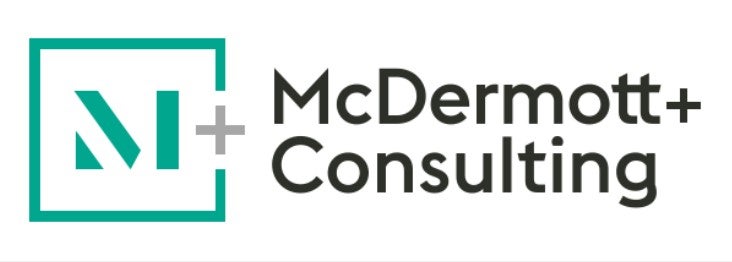THIS WEEK’S DOSE
- Government Shutdown: Lawmakers are still working to avert a government shutdown on October 1. The Senate is considering a short-term continuing resolution (CR) to fund the government through November 17, while the House is taking up individual FY 2024 appropriations bills with spending cuts that will likely not pass the Senate and failed to pass its own short-term CR today.
- Medicare Hearings: The Senate Budget Committee held a hearing on seniors in Medicare and the Senate Finance Committee held a hearing to consider nomination of Medicare Trustees.
- 2024 MA Premiums: The Centers for Medicare & Medicaid Services (CMS) announced Medicare Advantage (MA) premiums for 2024.
CONGRESS
Senate and House on Different Government Funding Paths; Shutdown Likely on October 1. The Senate is considering a short-term CR to fund the government through November 17, but final passage appears unlikely before midnight on September 30. The House is proceeding with consideration of FY 2024 appropriations bills and failed to pass its own short-term CR with border security provisions attached today. Work is expected to continue into the weekend.
House Issues Shutdown Guidance. The Committee on House Administration issued guidance to assist House offices and legislative branch agencies in operations during a government shutdown. The guidance notes that because each member will decide who is an “essential employee,” how offices operate will vary widely based on internal decision-making. House buildings will remain open to the public, but limited office doors will be open and events are prohibited from being hosted in the buildings. As of publication, the Senate had not released similar guidance.
Situation Remains Fluid. We will continue to monitor legislative action to avoid (or end) a shutdown, along with news of any impacts on Capitol Hill business and within HHS.
Representative Pallone and Senator Wyden Launch Prior Authorization Investigation. On September 28, House Energy and Commerce Committee Ranking Member Pallone (D-NJ) and Senate Finance Committee Chair Wyden (D-OR) sent a series of letters to the largest Medicaid Managed Care Organizations (MCOs) across the country as part of a new investigation seeking answers following reports of high rates of prior authorization denials for patients. While Representative Pallone had indicated plans to do this previously, teaming up with Senator Wyden elevates the issue and brings further scrutiny of MCOs. This effort follows a July 2023 HHS OIG report discussing high rates of prior authorization denials and concerns on access to care in MCOs.
Senate HELP Committee Ranking Member Cassidy Releases RFI on CDC. Senate Health, Education, Labor & Pensions (HELP) Committee Ranking Member Cassidy (R-LA) released a request for information (RFI) to modernize the US Centers for Disease Control and Prevention (CDC). Ranking Member Cassidy requests input on how the CDC can better coordinate with stakeholders, modernize public health data and improve core public health activities, such as epidemiology, training programs and the CDC’s global health portfolio. The RFI includes more than 30 questions. Responses are due to CDCModernization@help.senate.gov no later than close of business on Friday, October 20.
Senate Budget Committee Examines Seniors in Medicare. The Senate Budget Committee met to discuss the benefits of the Medicare program for US seniors and to guarantee Medicare’s solvency. Senators expressed bipartisan concern about the rapid growth of spending on healthcare and the projection that Medicare will become insolvent in 10 years. Republican and Democratic members differed on the best approach to achieve solvency, however. Democrats proposed solutions that would raise taxes for the top 2% of high-income businesses. Republicans highlighted opportunities to increase free-market competition and limit government regulation and expressed opposition to a single-payer system. Witnesses and senators discussed closing loopholes that high-income businesses may use to avoid paying taxes that fund Medicare (i.e., hedge funds and private equity firms).
Senate Finance Committee Holds Hearing on Medicare Trustees. The committee questioned the two public trustee nominees, Patricia Neuman and Demetrios Kouzoukas, on how their experience has prepared them to provide oversight of the Medicare Trust Fund and their ability to provide objective, nonpartisan information. Neuman and Kouzoukas both confirmed their commitment to working together and with the board to provide objective financial reports. Senator Warren (D-MA) expressed concern over Kouzoukas’ potential ties with certain Medicare Advantage plans and highlighted that this could be a conflict of interest for a public trustee.
ADMINISTRATION
HHS Issues Contingency Staffing Plan for Operations in the Absence of Enacted Annual Appropriations. The agency’s contingency plan provides details on staff who will continue work during a shutdown, as well as key programs that will continue without interruption. Details are broken out by each of HHS’s operating divisions, all of which are linked on the main HHS contingency plan page. In general, HHS will furlough approximately 40% of its staff if there is a shutdown. Medicare, Medicaid and the Affordable Care Act marketplace will remain fully operational, but if the shutdown extends for a long period of time, certain providers could face delayed payments under the Medicare fee-for-service program by some Medicare Administrative Contractors (MACs). For more information on regulatory impacts, read this week’s McDermott+ Regs & Eggs blog.
CMS Announces 2024 MA Premiums. CMS announced that average premiums for MA will largely hold steady in 2024. The average monthly premium for all MA plans, including Medicare Advantage-Prescription Drug plans, is projected to increase slightly from $17.86 in 2023 to $18.50 in 2024 (an increase of $0.64). CMS stated that the majority of beneficiaries (73%) won’t experience any premium increases. MA enrollment is expected to continue to grow from 48% of Medicare enrollees in 2023 to 50% in 2024.
CMS previously announced that the average monthly premium for Medicare Part D coverage is projected to be approximately $55.50 in 2024, a decrease of 1.8% from $56.49 in 2023.
Medicare Open Enrollment Is Coming. CMS reminded the public that Medicare Open Enrollment begins on October 15 and ends on December 7. CMS provided additional information and resources related to the coverage options that will be available in 2024. CMS noted that this enrollment period should not be impacted if a shutdown were to occur.
CMS Announces CY 2024 MA VBID Model Participants. CMS announced 69 MA organizations (MAOs) participating in the CY 2024 MA Value-Based Insurance Design (VBID) Model. Through the VBID Model, CMS will test a broad array of innovations for MA enrollees, notably those with low incomes, such as dually eligible and those qualifying for the Low-Income Subsidy Program. The model will also seek to reduce costs for enrollees and the overall Medicare program.
The 69 participating MAOs will test the model in 49 states; Washington, DC; and Puerto Rico through 1,528 plan benefit packages. Thirteen of the MAOs will participate in the Hospice Benefit Component and will test the inclusion of the Part A hospice benefit in MA benefits through 78 plan benefit packages in service areas that cover 690 counties. All 69 participating MAOs prepared a health equity plan outlining how they will address potential inequities and disparities in access, outcomes and/or enrollee experience of care across their participating model components.
CMS plans to release its CY 2025 VBID request for applications in early winter 2024. CMS will release a separate CY 2025 request for applications for the Hospice Benefit Component, also planned for early winter 2024.
QUICK HITS
- Senate Finance Committee Chairman Wyden (D-OR) and Ranking Member Crapo (R-ID) Introduce PBM Bill. The Senate Finance Committee Chairman and Ranking Member introduced the Modernizing and Ensuring PBM Accountability Act. The bill text reflects the policies that were reported out of the committee’s markup in July.
- Administration Extends Comment Period for Mental Health Parity Proposal. The proposed rules aim to enforce mental health parity requirements and require commercial health plans to evaluate the outcomes of their coverage rules to help ensure that people have equivalent access between their mental health and medical benefits. The comment period has been extended for 15 more days, moving the deadline to October 17.
- ARPA-H Announces Launch of ARPANET-H. The Advanced Research Projects Agency for Health (ARPA-H), an agency within HHS, announced the launch of ARPANET-H, a nationwide health innovation network anchored by three ARPA-H regional hubs. The hubs will be mission-focused regional centers with a growing network of spokes around the country representing the diversity of people, settings and capabilities encompassed by the US health ecosystem.
- GAO Releases Report on Nursing Home Ownership Data and Private Equity Owners. The US Government and Accountability Office (GAO) estimated that 5% of nursing homes had private equity ownership in 2022. GAO identified two main limitations in using CMS’s data: many nursing homes did not have all of their owners listed in CMS’s data and CMS’s data did not provide a means of readily identifying private equity firms. This report is likely to further Congress’s interest in addressing transparency in healthcare ownership.
- HHS Announces $200M+ to Support Youth Mental Health. HHS, through the Substance Abuse and Mental Health Services Administration, the Health Resources and Services Administration, and the Administration for Children and Families, announced $206 million in grant awards towards youth mental health. The grants will be used to connect youth and families to behavioral health services, expand mental health care access in schools and improve mental health services provided in the child welfare system.
- HHS Awards $13M for Community-Based Support Services for Pregnant and Post-Partum People. The HHS Office of Minority Health announced that it has awarded more than $13 million in grants to 11 organizations for its Healthy Families Community-Based Perinatal Health Initiative, to develop innovative models for integrating community-based maternal support services into perinatal systems of care. The project period for these grants begins on September 30.
- HHS Announces $103M+ for New Initiatives to Address Maternal Health Crisis. HHS will award more than $103 million to support and expand access to maternal health. HHS will also form a new task force to address maternal mental health conditions and co-occurring substance use disorders, and will launch a national public education campaign, Talking Postpartum Depression, to provide information about and combat stigmatization associated with this significant public health issue. The investments will be used to expand and diversify the perinatal workforce, increase access to maternal health services, support parents and families, and invest in maternal health research.
NEXT WEEK’S DIAGNOSIS
Next week’s legislative agenda remains unclear as the clock ticks toward a likely government shutdown beginning at 12:01 am EDT on Sunday. We will continue to update you on any legislative or regulatory activity as it occurs.







 />i
/>i

